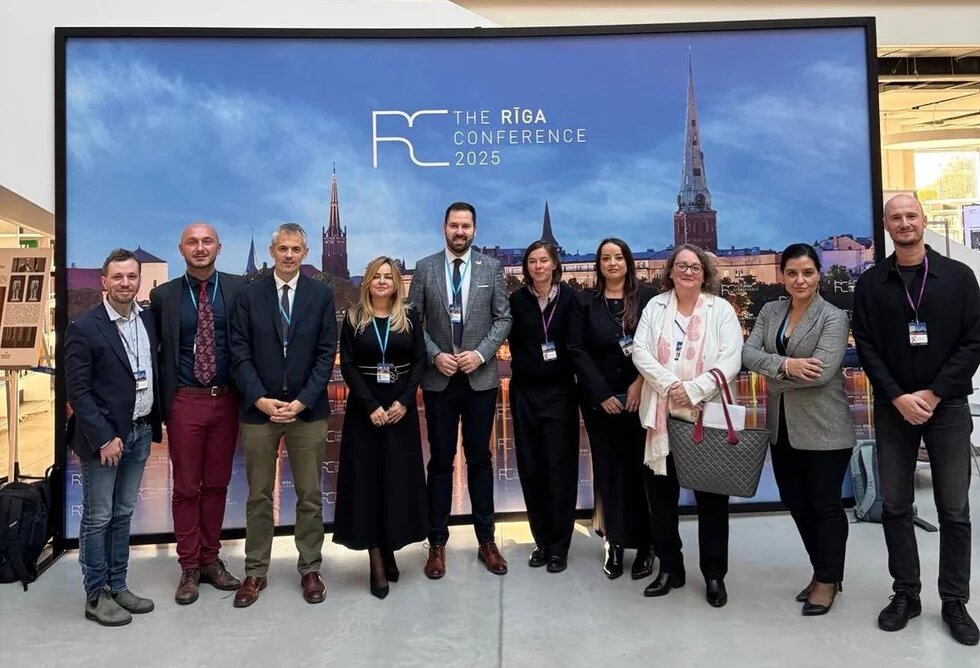The fate of the countries of the Western Balkans and the candidates states further East (Ukraine, Moldova and Georgia) is intertwined in the current geopolitical battle between the authoritarian countries to the East and Western democracies. As the people of these regions seek to move closer to the EU and NATO, they are confronted not just with Russian sabotage efforts and domestic authoritarian actors (eg. Serbia, BiH, Georgia), but also with growing insecurity among the big Western powers about enlargement. In this sense, democratically-minded governments and civil society actors from the region view the EU/NATO countries of the east Baltic as natural allies in pursuing a common agenda based on joint interests.

Key areas of mutual interest between the countries of the Western Balkans and the Baltics
1. Russian destabilization efforts continue to play an important role in preventing the Western Balkans best from moving forward towards full integration into Western structures, as a means of securing leverage against the West for Russia’s territorial ambitions against immediate neighbors. Russia views the Western Balkans as a region where it can play spoiler against NATO and EU interests, to gain leverage and bargaining chips against the West in its campaign of territorial aggression against the neighbors it has a more direct interest in subjugating – i.e. Ukraine, the South Caucasus, etc. Russia relies primarily on proxies and supportive political networks – primarily in Serbia and Bosnia and Herzegovina but also other countries - for which it helps create an enabling political environment through energy coercion, hybrid destabilization efforts, and disinformation campaigns. These efforts seek to inflame inter-ethnic tensions, sow divisions within the countries of the region and prop up authoritarian leaders, as a means of preventing the paths of these countries towards NATO and the EU, and preserving the possibility of instigating a conflict around NATO territory. Russia maintains a monopoly in the gas sector, e.g. in Bosnia and Hercegovina and political actors in Republika Srpska and the HDZ have blocked projects to diversify supply. Gas has also been used as a political tool, including during moments of heightened instability. Additionally, Dodik has called on Russia to block the annual renewal of the EUFOR Althea mission at the UN Security Council, most recently during a visit to Moscow in early November. Central to this effort is Russia’s hold over Serbia’s geopolitical orientation, because it is through its regional policy of using influence and vetoes in regional countries that Russia too – by extension – gets a veto over the region’s EU and NATO path.
2. The EU accession process for the Western Balkans is moving very slowly also due to the EU’s frequent lack of unity and abuse of bilateral disputes by member states, as well as inconsistencies in applying democracy-based conditionality. North Macedonia for almost 20 years as a candidate country for EU membership has been blocked by its neighbors on issues outside the Copenhagen criteria. Kosovo cannot obtain candidate status because five member states do not recognize its independence. The EU cannot assert proper pressure against Milorad Dodik in Bosnia and Herzegovina due to Hungary and Slovakia’s vetoes of sanctions. Albania and Montenegro have been moving faster as of late in accession chapter negotiations but face uncertainty in Council votes in the future. In order to overcome such challenges, the Western Balkans may benefit from the Baltics accession story. Estonia, Latvia, and Lithuania should leverage their influence within the EU to ensure the Western Balkans becomes a higher strategic priority in EU foreign and security policy — drawing on the Baltic Model as inspiration.
Recommendations
The countries of the Baltics should:
- Support an accelerated accession process talks with Montenegro and Albania, so that accession once again can seem as a tangible goal. Yet at the same time they should ensure that conditionality over democratic reforms is applied strictly, by also supporting EU instruments and mechanisms for financial and technical assistance to this end, including those for civil society.
- Support efforts to secure unanimity within the EU Council as a means of: a) overcoming the bilateral disputes that are preventing the accession paths of North Macedonia and Kosovo from moving forward; b) adopting restrictive measures and sanctions against actors who are not aligned with the EU’s CSFP formally and in practice and who undermine democracy or engage in destabilizing actions. But doing so consistently and not asymmetrically (e.g. restrictive measures targeting only Kosovo being a case in hand)
- Seek to establish new frameworks of region-to-region cooperation between governments and civil society actors in the Western Balkans and the Baltics in areas of mutual interest. The Baltic countries can act as bridge between the EU and WB6 for joint projects in cybersecurity, media freedom, digital transformation, and energy diversification.
October 2025.